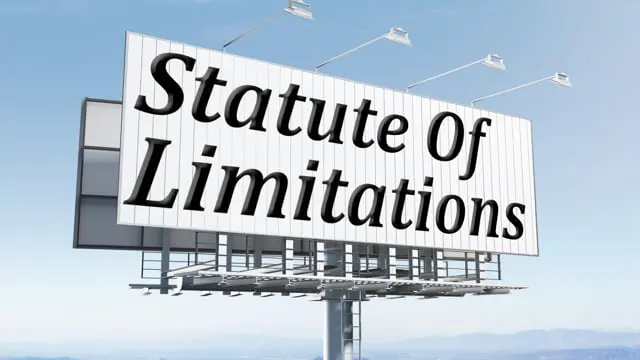When preparing for your first meeting with a abogado de divorcios, bringing the right documents is crucial. These documents provide the necessary information to help your lawyer understand your situation, build your case, and offer the best possible legal advice. Knowing what to bring can make the consultation more productive and set a strong foundation for your divorce proceedings. This guide will outline the essential documents you should bring and explain their importance.
Divorce is a complex and often emotionally charged process. Proper preparation can significantly impact the outcome of your case and ease the transition. By ensuring you have all necessary documentation, you empower your lawyer to advocate effectively on your behalf. This article will provide a comprehensive list of the documents needed and delve into their significance in divorce proceedings.
Personal Identification and Contact Information
The first step in preparing for your initial consultation is gathering your personal identification and contact information. This includes your driver’s license, social security card, and any other relevant identification documents. Having these on hand helps establish your identity and provides your lawyer with the necessary details to start your case.
In addition to your identification, you should bring a list of your contact information, including your home address, phone numbers, and email addresses. Providing comprehensive contact details ensures that your lawyer can reach you easily for updates or additional information.
Identification documents are foundational in any legal process. They verify your identity and ensure that all legal proceedings are correctly attributed to you. This step, while seemingly straightforward, is crucial for establishing trust and clarity between you and your lawyer.
Marriage and Divorce Documents
Your lawyer will need copies of your marriage certificate and any previous divorce decrees if applicable. These documents are vital for establishing the legal context of your marriage and any prior legal arrangements. If you have a prenuptial agreement, bring a copy of that as well, as it can significantly impact the division of assets and other aspects of the divorce.
If you have already initiated divorce proceedings, any filed documents such as the divorce petition or summons should also be included. These documents provide your lawyer with an understanding of the current status of your case and any actions that have already been taken.
Marriage certificates and divorce decrees establish the legal history of your relationship. They are essential for your lawyer to understand the legal bindings and obligations from your marriage. Prenuptial agreements, if present, can simplify or complicate the proceedings based on their terms.
Financial Documents
Financial information is a critical aspect of divorce proceedings, affecting everything from property division to spousal support. Be sure to gather and bring the following financial documents:
- Income Statements: Recent pay stubs, tax returns (at least the past three years), and W-2 or 1099 forms for both you and your spouse. These documents provide a clear picture of your income and financial situation.
- Bank Statements: Copies of bank statements for all accounts, including checking, savings, and joint accounts. These statements help identify assets and financial transactions.
- Credit Card Statements: Bring recent statements for all credit cards, which can reveal spending habits and outstanding debts.
- Investment Accounts: Documentation for any investment accounts, including stocks, bonds, mutual funds, and retirement accounts. These assets are subject to division in a divorce and must be accurately valued.
- Property and Assets: Any documentation related to property ownership, such as deeds, mortgage statements, and property tax assessments. This also includes titles for vehicles, boats, or other significant assets.
Financial documents provide a snapshot of your economic standing. Income statements and tax returns are critical for assessing your earning capacity and financial responsibilities. Bank and credit card statements offer insights into spending habits and potential assets or liabilities.
Debts and Liabilities
Understanding the full scope of your financial situation includes acknowledging debts and liabilities. Bring documentation for any outstanding loans, including mortgage loans, car loans, student loans, and personal loans. This also includes any liens or judgments against you or your spouse.
Accurate documentation of debts is crucial for determining the division of liabilities in the divorce settlement. It helps your lawyer understand your financial obligations and devise a strategy for equitable distribution.
Debts and liabilities can significantly impact the financial aspects of a divorce. Comprehensive records ensure that all financial obligations are accounted for, which is essential for a fair settlement. Accurate debt documentation helps avoid disputes and ensures clarity during negotiations.
Legal and Court Documents
If you are involved in any other legal proceedings or have any existing court orders, bring those documents to your first meeting. This could include restraining orders, custody orders, or any ongoing litigation that may impact your divorce.
These documents provide context for your lawyer and help them navigate any potential legal complexities. For instance, existing custody arrangements will influence discussions about child custody and support.
Legal and court documents offer a window into any ongoing legal issues that might affect your divorce. Restraining orders and custody agreements are particularly significant as they directly impact the terms of the divorce and the wellbeing of any children involved.
Employment and Benefits Information
Employment and benefits information can affect various aspects of your divorce, including spousal support and division of assets. Bring your employment contract, benefits statements, and information about any health insurance policies. If you or your spouse receive bonuses, commissions, or other variable income, provide documentation for those as well.
Understanding your employment benefits, such as retirement plans, stock options, and health insurance, is crucial for negotiating a fair settlement. Your lawyer needs a complete picture of your financial resources and obligations to advocate effectively on your behalf.
Employment and benefits documentation helps clarify your financial stability and potential future earnings. Detailed information about bonuses and variable income is particularly important as it impacts the calculation of spousal and child support.
Child-Related Documents
If you have children, bring any documents related to their care and expenses. This includes birth certificates, school records, medical records, and information about extracurricular activities. Documentation of childcare expenses, including daycare or after-school care, is also important.
Child-related documents are essential for determining custody arrangements and child support. They provide evidence of your involvement in your children’s lives and the expenses associated with their care, which can influence the court’s decisions.
Children’s wellbeing is often the most critical aspect of divorce proceedings. Comprehensive records of their needs and expenses ensure that any arrangements made are in their best interest. This documentation also supports claims for custody and financial support.
Household Bills and Living Expenses
To give your lawyer a comprehensive understanding of your financial situation, bring copies of your household bills and living expenses. This includes utility bills, grocery receipts, and any other regular expenses. Providing a detailed account of your monthly living expenses helps your lawyer calculate an accurate budget and determine financial needs.
Household bills and living expenses are critical for discussions about spousal support and the division of assets. They provide a realistic picture of your cost of living and financial obligations, which can impact the terms of your divorce settlement.
Accurate records of household expenses help establish the standard of living during the marriage. This information is crucial for determining spousal support and ensuring that both parties can maintain a reasonable quality of life post-divorce.
Business and Self-Employment Records
If you or your spouse own a business or are self-employed, bring all relevant business records. This includes tax returns, profit and loss statements, balance sheets, and any other financial documentation related to the business. Accurate business records are essential for valuing the business and determining its role in the divorce settlement.
Business ownership adds complexity to divorce proceedings, as the business may be considered marital property subject to division. Providing thorough documentation helps your lawyer assess the business’s value and develop a strategy for equitable distribution.
The division of business interests can be one of the most contentious aspects of a divorce. Detailed records are necessary to determine the business’s value and establish a fair distribution plan. This documentation helps protect your financial interests and ensures an equitable settlement.
Preparing for Your Meeting
In addition to gathering these documents, take some time to prepare for your meeting by making a list of questions or concerns you have about the divorce process. Think about your goals and priorities, such as custody arrangements, financial support, and the division of assets. Being clear about your objectives will help your lawyer understand your needs and develop a strategy tailored to your situation.
Preparation is key to a productive first meeting with your abogado de divorcios. Bringing the right documents and having a clear understanding of your goals will enable your lawyer to provide the best possible advice and representation.
Effective preparation sets the stage for a successful legal strategy. By clearly outlining your goals and concerns, you help your lawyer focus on what matters most to you, ensuring that your interests are represented effectively throughout the divorce process.
Importance of Communication
Effective communication with your lawyer is crucial throughout the divorce process. Ensure you provide accurate and complete information and promptly respond to any requests for additional documents or details. Maintaining open lines of communication helps your lawyer stay informed and prepared to advocate on your behalf.
Regular communication allows your lawyer to address any changes in your situation and adjust their strategy accordingly. It also helps build a strong attorney-client relationship based on trust and transparency, which is essential for a successful outcome.
Open and honest communication ensures that your lawyer can represent your interests effectively. It also helps you stay informed about the progress of your case, reducing anxiety and helping you feel more in control of the process.
Conclusión
Preparing for your first meeting with a divorce lawyer involves gathering essential documents that provide a comprehensive picture of your personal, financial, and legal situation. By bringing identification, marriage and divorce documents, financial records, debts and liabilities, legal and court documents, employment and benefits information, child-related documents, household bills, and business records, you ensure that your lawyer has all the necessary information to represent you effectively.
Clear communication and thorough preparation can make your initial consultation more productive, setting the stage for a successful divorce process. By understanding what documents to bring and why they are important, you can take the first step toward achieving a fair and favorable outcome in your divorce proceedings.
Divorce is a challenging process, but with the right preparation and legal support, you can navigate it more smoothly. Taking the time to gather comprehensive documentation and communicate effectively with your lawyer can make a significant difference in the outcome of your case.
What Type of Attorney for Divorce Cases and How to Find Them on Attorneys.Media
Type of Attorney: Divorce Lawyer
For cases involving divorce, it is essential to seek the expertise of a abogado de divorcios. These legal professionals specialize in family law and have extensive experience handling all aspects of divorce, including property division, spousal support, child custody, and support arrangements. A divorce lawyer can provide the guidance and representation you need to navigate the complexities of divorce proceedings and achieve a fair outcome.
Divorce lawyers are well-versed in the legal intricacies of ending a marriage and can help you understand your rights and obligations. They are skilled negotiators who can mediate disputes and, if necessary, represent you in court to ensure your interests are protected.
How to Find a Divorce Lawyer on Attorneys.Media
Finding a qualified divorce lawyer is straightforward with the resources available on Attorneys.Media. Here’s a step-by-step guide on how to locate the right legal professional for your needs:
1. Visit Attorneys.Media
Start by going to the Attorneys.Media website. The homepage provides various search options and resources tailored to help you find legal professionals.
2. Use Relevant Keywords
Enter relevant keywords into the search bar to narrow down your options. Keywords such as “abogado de divorcios,” “abogado de derecho de familia,” or “experienced divorce attorney” will help you find lawyers who specialize in handling divorce cases.
3. Explore Categories
Browse through the categories listed on the site. Look for categories under Derecho Civil such as “divorce law” or “family law.” These categories will list attorneys who focus on divorce and related issues.
4. Read Profiles and Watch Videos
Click on the profiles of the listed attorneys to read more about their experience, areas of specialization, and videos. Detailed profiles will provide information about the lawyer’s background, qualifications, and approach to handling divorce cases.
5. Check Credentials and Experience
Pay attention to the credentials and experience highlighted in the lawyer’s profile. Look for details such as years of practice, specific cases handled, and success rates. This information will help you gauge the lawyer’s expertise and suitability for your case.
6. Contact Attorneys
Once you find potential divorce lawyers, use the contact information provided to reach out and schedule consultations. This step will allow you to discuss your case, understand the lawyer’s approach, and determine if they are the right fit for your needs.
7. Prepare for the Consultation
Before your consultation, prepare a list of questions and gather the necessary documents as outlined earlier in this article. This preparation will help you make the most of your meeting and provide the lawyer with a clear understanding of your situation.
8. Assess Communication and Rapport
During the consultation, assess how well the lawyer communicates and whether you feel comfortable discussing personal matters with them. A good attorney-client relationship is crucial for effective representation and a successful outcome.
By following these steps on Abogados.Media, you can find an experienced divorce lawyer who can effectively represent you and help you achieve a favorable outcome in your divorce proceedings.
Additional Tips for Choosing the Right Divorce Lawyer
Research and Compare
Take the time to research and compare multiple lawyers before making a decision. Look at their track record, fees, and client testimonials. Comparing different options will give you a better sense of which lawyer is best suited to handle your case.
Understand the Fee Structure
Make sure you understand the lawyer’s fee structure before hiring them. Divorce lawyers typically charge either an hourly rate or a flat fee. Discuss all potential costs upfront, including any additional expenses that may arise during the case.
Look for Specialization
If your divorce involves specific issues such as high-net-worth assets, complex property division, or contentious child custody disputes, look for a lawyer who specializes in those areas. Specialized knowledge can make a significant difference in the outcome of your case.
Check for Professional Memberships
Membership in professional organizations such as the American Bar Association (ABA) or local bar associations can indicate a lawyer’s commitment to staying updated with the latest developments in family law.
Seek Referrals
Ask friends, family members, or colleagues for referrals to divorce lawyers they have worked with. Personal recommendations can provide valuable insights and help you find a trusted legal professional.
Conclusión
Navigating a divorce can be challenging, but finding the right lawyer can make a significant difference. A qualified divorce lawyer will provide the expertise, guidance, and representation you need to achieve a fair and favorable outcome. By using the resources available on Abogados.Media and following the steps outlined above, you can find an experienced divorce lawyer who will advocate effectively on your behalf. Taking the time to choose the right lawyer will ensure that you are well-supported throughout the divorce process, helping you move forward with confidence and clarity.








